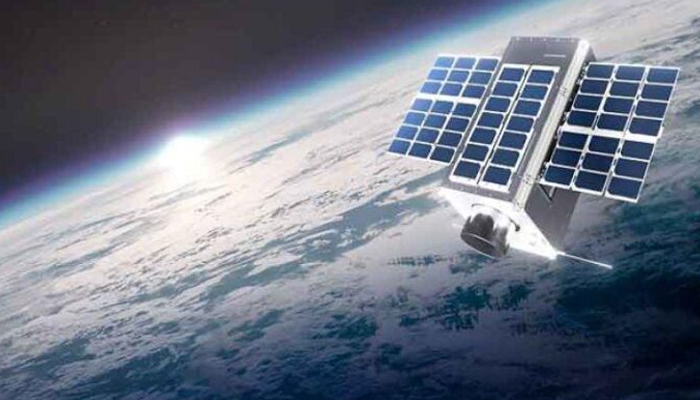Pakistan to launch second satellite into space on May 30
Satellite will help usher Pakistan into the digital era by helping to provide internet to remote areas, says SUPARCO
May 29, 2024

Pakistan's latest modern Communication Satellite, MM1, is all set to be launched into space on Thursday (May 30), Radio Pakistan reported, after the successful launch of Satellite ICUBE Qamar.
The satellite — PAKSAT MM1 — will be launched from Xichang Satellite Launch Center (XSLC), China.
The state-run broadcaster reported that the SUPARCO MM1 satellite is a result of the tireless efforts of Pakistani scientists and engineers and it is conceived to keep in sight the growing needs of the country in the broad spectrum of communication and connectivity.
According to SUPARCO officials, the satellite will help usher Pakistan into the digital era by helping to provide internet to remote areas.
Project Director PakSat MM1 M Imran said: "Our team is very excited for the upcoming launch of PakSat MM1 on May 30."
Based on advanced communication technologies, PakSat MM1 will play a pivotal role in the socio-economic uplift of the country and will prove to be a stepping stone in the transformation of the country into "Digital Pakistan".
The launch ceremony will be shown live for media from the Islamabad and Karachi establishments of Suparco.
The satellite is expected to contribute to the establishment of a sophisticated communication network and help meet the growing demands of the telecom sector and its advanced capabilities will address the increasing demand for high-speed internet and seamless connectivity.
SUPARCO said: "This high-power multi-mission satellite will provide communication services in C, Ku, Ka Bands and SBAS services in L Band."
Based on advanced communication technologies, PakSat-MM1 will play a pivotal role in the socio-economic uplift of the country, the agency said.
"It will prove to be a stepping stone in the transformation of the country into Digital Pakistan. It will provide various communication services like broadband internet, TV broadcasting, Mobile bank –hauling and VSAT connectivity."
Project Manager MM-1 Usman Iftikhar said that the primary objective behind the PAKSAT MM-1 satellite is to strengthen Pakistan’s communication infrastructure and pave the way for broadening the horizons for connectivity, serving the unserved, tele-education, e-health, e-governance and e-commerce while transforming Pakistan into a digital powerhouse.
He said that communication infrastructure is the backbone of any country and plays an important role in the development of the country and this satellite will help provide connectivity to the remote areas of the country.
This satellite is a communication satellite that will be sent in a Geostationary Orbit.
Earlier, Pakistan’s historic lunar mission (ICUBE-Q) was launched on May 3 on board China’s Chang’E6 from Hainan, China.
The satellite iCube-Qamar mission marked Pakistan’s first lunar exploration effort which is a significant milestone for the country’s space endeavours.
The satellite iCube-Q was designed and developed by the Institute of Space Technology (IST) in collaboration with China’s Shanghai University SJTU and Pakistan’s national space agency SUPARCO.
The satellite, weighing about 7kg, was developed by the Electrical Engineering Department of the Institute of Space Technology (IST) in Islamabad.
The satellite successfully captured and transmitted its inaugural images from lunar orbit, providing a unique perspective of the moon’s surface.












